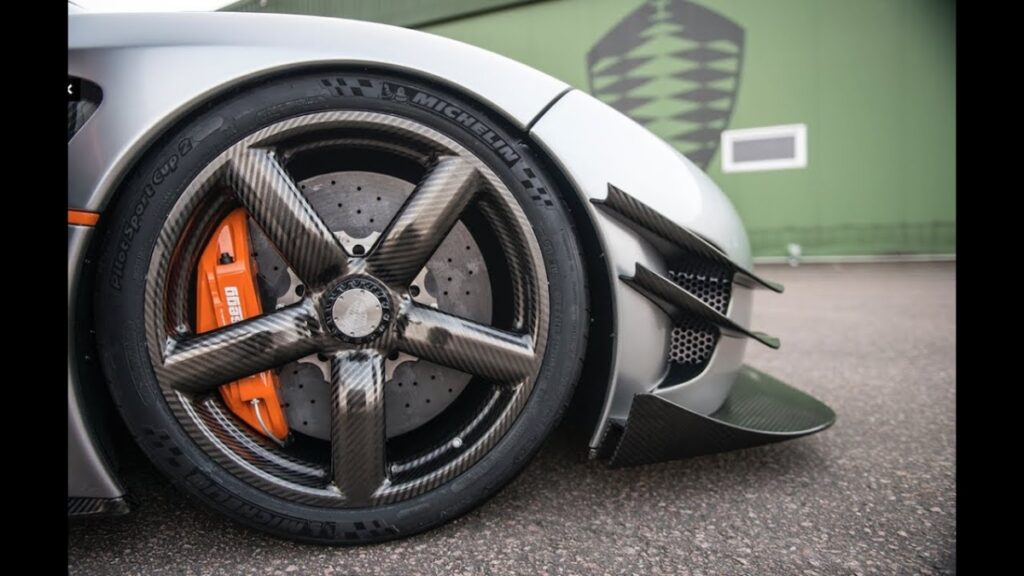Carbon fiber has been around for a considerable amount of decades now. Its advantageous characteristics such as high strength, high chemical resistivity, high thermal tolerance, and yet light weightedness and low thermal expansion makes it the ideal candidate for many industrial products. Many industries are adopting carbon fiber products such as, space, military, vehicle, sports, chemical, construction, even fashion industry is now giving birth to some outstanding carbon fiber products. Carbon fiber has proved to be fruitful to these industries to varying degrees, but one industry which prominently is benefiting from carbon fibers is the vehicle industry. High strength, high chemical resistivity, coupled with light weightedness of carbon fibers provide ultra speed, balance, and control to vehicles. More than any part, wheels of a vehicle particularly benefit from carbon fiber composition, because of high tensile strength, and thermal resistivity, since wheels are nearest to ground and undergo the highest amount of friction producing a good lot of heat. We provide an analysis of pros and cons of carbon fiber wheels, and some examples pertaining to it. The method of Carbon fiber molding used for small products of simple design where cost-effectiveness is crucial.
Advantages
- Lightweightedness: The most prominent benefit that carbon fiber wheels confer is the light weightedness of the vehicle. It is said that carbon fiber wheels weigh at least two pounds less than conventional aluminum wheels.
- Improved Suspension: This light-weightedness of the vehicle yields further benefits in the form of improved suspension by reducing rotational inertia and unsprung weight. Which dramatically improves the ride quality and experience.
- Road Balance: Since there is less strain on the suspension system, as we have seen, the tyre contact with the road is much more consistent, which yields phenomenal traction, maneuvering, and control on the vehicle.
- Efficiency: Overall it is said that weight reduction through carbon fiber wheels causes 25% reduction in inertia. Lightweightedness means that the engine or rider has to spend less energy on wheel rotation, thereby improving steering and vehicle response.
- Decreased Road Noise: In addition to that, different composition and structure of carbon fibers than aluminium result in decreased road noise, and vibration, hence enhancing ride comfort and experience. It also dramatically improves a vehicle’s acceleration because of its aero-dynamic properties.
Disadvantages
Cost:
One of the most practical considerations that need to be taken into account is the cost of the wheel. Since carbon fiber wheels manufacturing is still not as economical as aluminium wheels, therefore buying a carbon wheel can take a good amount of money as compared to aluminium wheels. Not everyone can afford them, at this stage of production.
Braking in Wet Conditions:
The second most common disadvantage associated with carbon wheels is their braking performance in relatively wet conditions. In terms of braking, carbon wheels are not that much responsive in wet conditions as they are in dry ones.
Durability:
Normally, an aluminium wheel can be fixed through various heat and expansion processes if it suffers a dent or any other kind of damage. However, in the case of carbon fiber wheels little can be done, because of their high stiffness. They usually do not take much damage because of this same property, but when they do it means a new wheel usually-because it is difficult to mold and repair the tyre because of the carbon fibers’ structure and properties- which costs way higher than a fix on an aluminium tyre.
Cost and Examples
There are two types of carbon fiber wheels which are most popularly in use: bicycle and car.
In cars the 2016 Ford Mustang Shelby GT350R was the first car to offer carbon fiber wheels. Nowadays a typical set of carbon fiber car wheels range between $10000 to $15000. But with time, this cost is coming to lower thresholds as the carbon fiber manufacturing industry is booming.
Most of the bicycles carbon fiber wheels cost around $800 to $2000. But there are options available above this threshold too, for higher performance and quality. Some of the normal priced bicycle wheels are as following:
- Light Bicycle AM928- $840- 3 years Warranty
- Roost i31AM- $900- 1 year Warranty
- Bontrager Kovee Elite 30 Boost TLR- $900- 2 years Warranty
- We Are One Composites Movement- $1,000- LifeTime Warranty
- Giant TRX 1 29- $1,182- 1 year Warranty
- Roval Traverse Carbon- $1,200- LifeTime Warranty
- Atomik Carbon 29 AM 35- $1,250- LifeTime Warranty
- Ibis S28- $1,300- 7 years Warranty
- Reynolds TR309- $1,300- LifeTime Warranty
- NOBL TR360- $1,250- 2.5 years Warranty
Carbon fiber wheels provide several advantages on the expense of their high cost. As the carbon fiber manufacturing industry will mature, the price of carbon fiber will hopefully come down, and we can expect the popularity of carbon to increase in the upcoming years.
Laila Azzahra is a professional writer and blogger that loves to write about technology, business, entertainment, science, and health.
